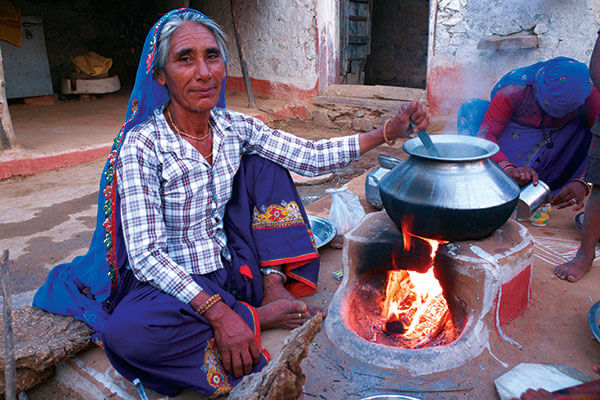In 2004, a giant wave lashed against the shores of the Indian Ocean, unleashing damage of a phenomenal magnitude. Countless lives were lost, many were permanently injured, families were separated, homes were demolished and livelihoods perished. The coast reeked of destruction. The tsunami brought life to a standstill in the fishing villages of Kollam and Alappuzha.

The sorrows, hardships and emancipation of Sunithi, Anitha and Mini, three simple women left to face the twists and turns of a difficult life, resonate. Sunithi had no home until she met Amma. Anitha was a young widow, and Mini lost a supportive husband and was thrown into the midst of huge financial crisis.
The story does not end there. These women are not alone in that their sentiments, tribulations and trials echo in the lives of thousands of women across rural India, for this journey is not singular.
Elsewhere, in Maharashtra, in the five months since the state government announced the Rs. 34,000-crore farm-loan-waiver scheme, nearly 1,020 farmers committed suicide unable to bear the burden of debt, as reported by the media.
During Amma’s travels all over India, thousands of women come to Amma. Among them are the widows of farmers who have committed suicide. Caught in the vicious cycle of escalating loans taken for greater and greater amounts of fertilizers and pesticides needed each year, these men left their women and children with no way to survive.
Deeply affected by the plight of these women, men, children — complete families caught in the throes of natural disasters, poverty, illiteracy and disease — Amma threw herself into their midst to protect and sustain the families, giving them emotional support, financial independence and a respectable place in society.
It was against the backdrop of these hardships, the 2004 Indian Ocean Tsunami and the spate of farmer suicides, that Amma began the AmritaSREE Self-Help Group programme in early 2005.